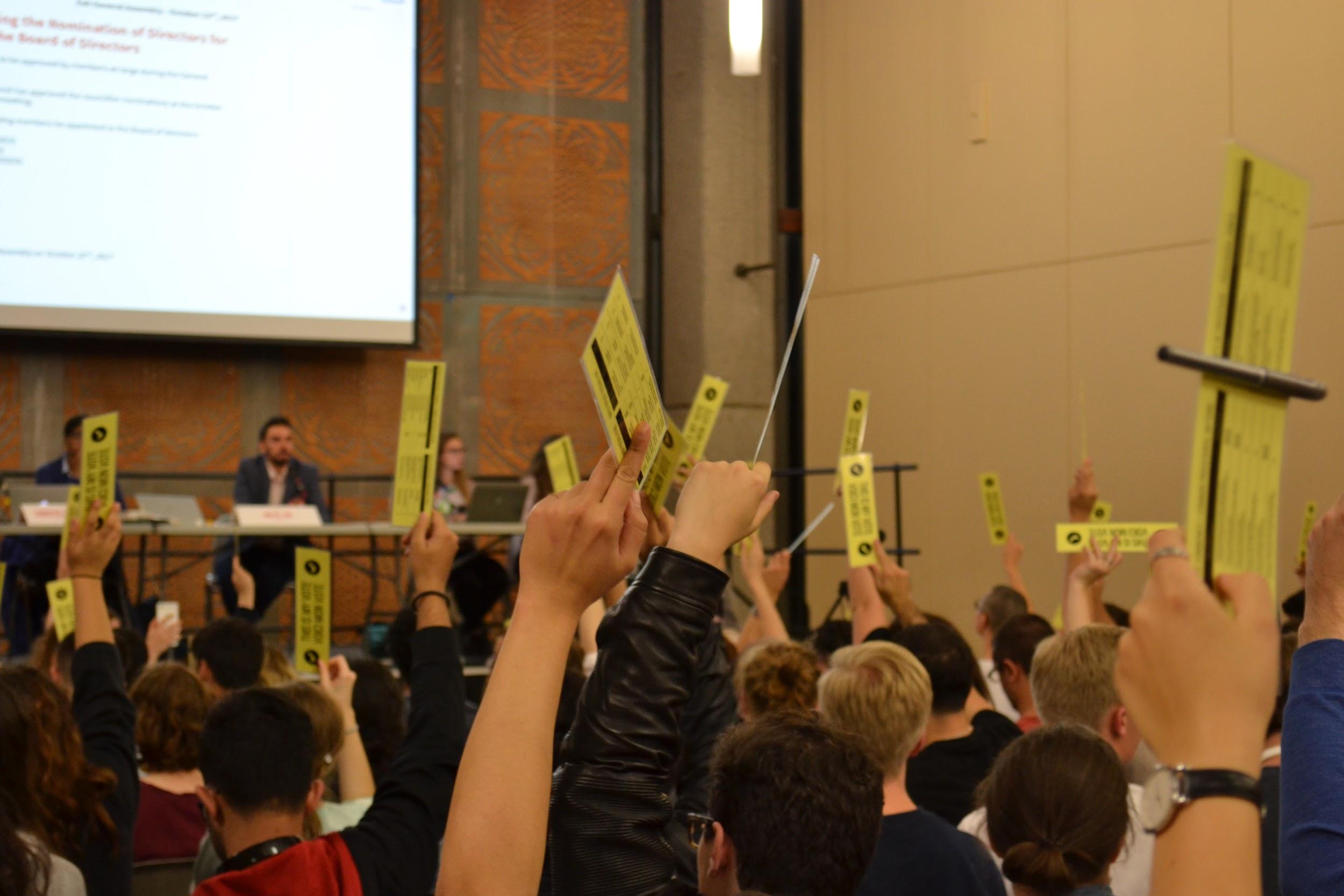On Nov. 6, Meara Kirwin, U2 Arts, and Gregoire Beaune, U3 Arts, filed a petition with the Students’ Society of McGill University (SSMU) Judicial Board (J-Board) against the Board of Directors’ (BoD) decision to add a question to the Fall 2017 Referendum. The question asks whether students would like to raise the quorum of General Assemblies (GA) to 350 students. The petition states that the question did not undergo the processes required in order to be added to Referendum by SSMU’s Internal Regulations of Elections and Referenda and by its Constitution. The Referendum polling period runs from Nov. 8 until Nov. 10 at 5 p.m..
Referendum questions are added through either a motion passed at a GA, a motion by SSMU Legislative Council, or through the submission of a petition with at least 100 student signatures to the SSMU Chief Electoral Officer (CEO) at least 14 days prior to the Referendum period. A petition to raise the quorum of GAs with 468 student signatures was created by Engineering Senator Tre Mansdoerfer and former Engineering senator Alexander Dow, both U3 Engineering. However, it was not submitted to the CEO before the Oct. 25 deadline for Referendum questions. A motion to raise GA quorum was not presented during the Fall 2017 GA on Oct. 23 or at a Council meeting this semester.
A statement released by the petitioners explained that raising the quorum would make GAs obsolete.
“The constitutional amendment put to referendum […] would have a significant effect on the General Assembly’s ability to consistently meet quorum and conduct business,” the petitioners wrote. “Instead, because proper procedure and deadlines were not followed, most students have been left unaware that this question is coming to referendum in the first place.”
In an unprecedented move, the BoD added the Referendum question through its own motion, the Motion to Bring General Assembly SSMU Constitutional Changes to Referendum, which was passed at the BoD’s Oct. 29 meeting. At the board’s Nov. 5 meeting, SSMU President Muna Tojiboeva explained why the BoD chose this course of action.
“We consulted legal just to see what our obligations were as a corporation under the [Companies Act] in Québec law, and what they said is [that] our [Internal Regulations] are not necessarily representative of what our real legal obligations are,” Tojiboeva said. “In reality, under article 91 of the [Companies Act], it’s only the Board that can approve questions that would go to change the constitution. It’s only the Board and the members that can make a new mandate or put a question to a vote for the membership.”
As a company registered in the province of Québec, SSMU is regulated by the Québec Companies Act, which takes precedence over the SSMU Constitution and Internal Regulations. Article 91 of the Québec Companies Act says that the directors of a company may repeal and make amendments to the by-laws of a company as long as those changes are confirmed at a general meeting of the members called for that express purpose.
“Basically, what our legal counsel said is that [Referendum questions] cannot come unilaterally from the membership as it was done before,” Tojiboeva said.
In an email to The McGill Tribune, Kirwin, one of the petitioners, explained what led her to challenge the BoD’s decision to add the Referendum question.
“We are concerned about the power currently held by the Board of Directors—an unelected body whose power has been increased through constitutional amendments in the past few years,” Kirwin wrote. “This referendum question was brought by the BoD unconstitutionally, and as SSMU members, we must insist that constitutional modes of decision-making are upheld, and that power is not taken from the General Assembly and consolidated at the top of the ladder.”









